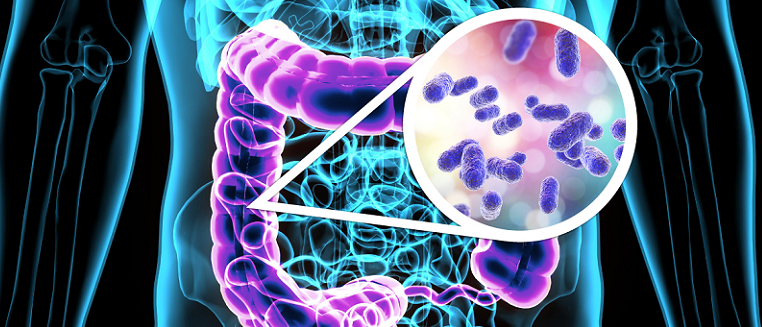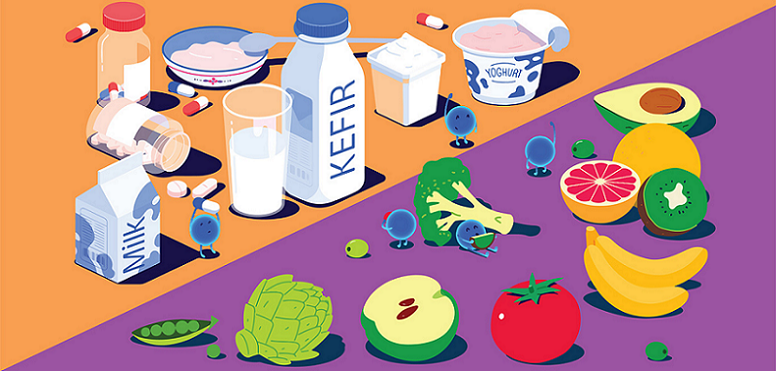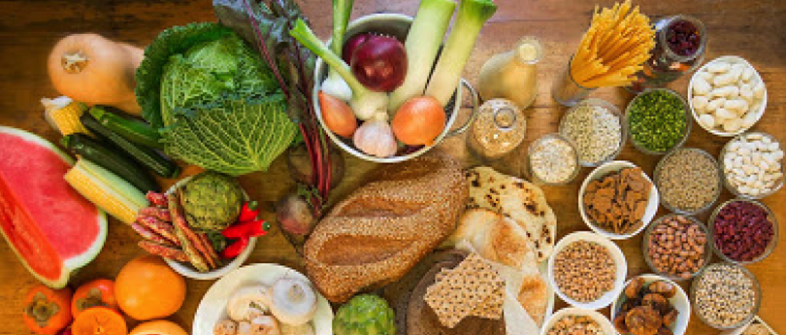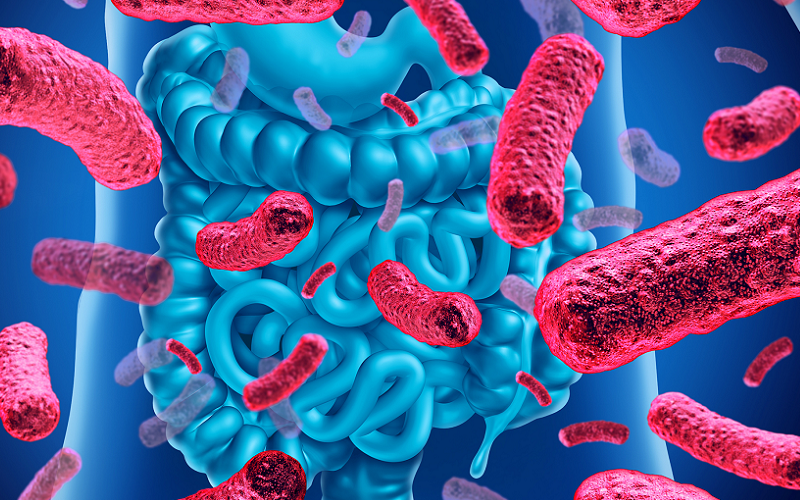Prebiotics and probiotics are two important components of gut health. Prebiotics are types of soluble fiber that are not digested by the human body, but are instead fermented by the beneficial bacteria in the gut. Probiotics, on the other hand, are live microorganisms that can help to maintain a healthy balance of bacteria in the gut.
Both prebiotics and probiotics play important roles in promoting gut health and overall well-being. By consuming a balanced diet that includes prebiotic-rich foods and probiotic-rich fermented foods and supplements, you can help to support your gut health and maintain a healthy gut microbiome.
The Importance of Prebiotics
Prebiotics are non-digestible carbohydrates that are found in certain foods. When consumed, they pass undigested through the small intestine and into the large intestine where they are fermented by gut bacteria. This fermentation process stimulates the growth and activity of beneficial bacteria in the gut, such as bifidobacteria and lactobacilli, which play important roles in maintaining gut health.
Prebiotics are distinct from probiotics, which are live microorganisms that can provide health benefits when consumed. While probiotics introduce new bacteria into the gut, prebiotics serve as food to support the growth and function of the existing beneficial bacteria.
Research has shown that a diet high in prebiotics can have a positive impact on gut health, leading to improved digestion, stronger immune system, and a reduction in the symptoms of some gut-related disorders such as irritable bowel syndrome (IBS). Common food sources of prebiotics include artichokes, asparagus, bananas, garlic, leeks, onions, and whole grains.

The Importance of Probiotics
Probiotics are live microorganisms, usually bacteria, that are similar to the beneficial microorganisms found naturally in the human gut. They are often referred to as “good” or “friendly” bacteria, as they can provide a range of health benefits when consumed in adequate amounts.
Probiotics work by colonizing the gut and helping to maintain a healthy balance of microorganisms in the gut microbiome. This balance is important for overall gut health and can help to improve digestion, boost the immune system, and reduce the symptoms of some gut-related conditions such as irritable bowel syndrome (IBS) and inflammatory bowel disease (IBD).
Probiotics can be found in a variety of food sources, including yogurt, kefir, fermented foods like sauerkraut and kimchi, and in supplement form. It’s important to choose probiotic products that contain live and active cultures, and to speak with a healthcare provider to determine the right dose and strain of probiotics for your individual needs.

The Differences Between Prebiotics and Probiotics
Probiotics are living microorganisms, usually bacteria, that are similar to the microorganisms found in the human gut. They are often referred to as “good” bacteria, as they can provide a range of health benefits when consumed in adequate amounts. Probiotics are commonly found in fermented foods such as yogurt, kefir, sauerkraut, and kimchi, as well as in dietary supplements.
In the human gut, the balance of good and bad bacteria is important for overall health. Probiotics work by colonizing the gut and helping to maintain a healthy balance of microorganisms in the gut microbiome. This can help to improve digestion, support the immune system, and reduce the symptoms of certain gut-related conditions such as irritable bowel syndrome (IBS) and inflammatory bowel disease (IBD).
In addition to their gut health benefits, probiotics have been shown to have positive effects on other aspects of health, such as reducing the severity of certain skin conditions, improving mental health, and reducing the risk of certain infections.
It’s important to choose probiotic products that contain live and active cultures, and to speak with a healthcare provider to determine the right dose and strain of probiotics for your individual needs. Different strains of probiotics can have different health effects, and the ideal dose can vary depending on factors such as age, overall health, and the reason for supplementation.
In general, probiotics are considered safe for most people when consumed in recommended amounts. However, in some cases, probiotics can cause side effects such as bloating, gas, and diarrhea, especially if taken in large amounts or if the person has a weakened immune system. As with any supplement, it’s important to speak with a healthcare provider before starting a probiotic regimen.

Which Are More Important, Prebiotics or Probiotics?
Both prebiotics and probiotics are important for gut health and overall well-being. Prebiotics serve as food for the beneficial bacteria in the gut, helping to support their growth and activity. Probiotics, on the other hand, are living microorganisms that can help to maintain a healthy balance of microorganisms in the gut and provide various health benefits.
It’s not possible to say that one is more important than the other, as both prebiotics and probiotics play complementary roles in supporting gut health. A diet that includes both prebiotic-rich foods and probiotics can help to promote a healthy gut microbiome, leading to improved digestion, stronger immune system, and reduced symptoms of certain gut-related conditions.
It’s important to consume a variety of prebiotic-rich foods and probiotic-rich foods or supplements in order to support the health of the gut microbiome. A balanced diet that includes a variety of fiber-rich fruits, vegetables, and whole grains, as well as fermented foods and probiotic supplements as needed, can help to maintain a healthy gut. As always, it’s best to consult with a healthcare provider to determine the right balance of prebiotics and probiotics for your individual needs.

What Are Good Sources of Prebiotics and Probiotics?
Prebiotics are a type of soluble fiber that are fermented by the beneficial bacteria in the gut. Probiotics are live microorganisms that can help to maintain a healthy balance of bacteria in the gut and provide various health benefits.
Good Sources of Prebiotics
Prebiotics are found in certain types of fiber that are not digested by the human body, but are fermented by the beneficial bacteria in the gut. Good sources of prebiotic fibers include:
- Artichokes
- Asparagus
- Bananas
- Garlic
- Leeks
- Onions
- Whole grains such as barley, wheat, and oats
These foods are rich in inulin and oligosaccharides, which are types of soluble fiber that are fermented by the gut bacteria. By consuming prebiotic-rich foods, you can help to support the growth and activity of the beneficial bacteria in your gut, which can lead to improved gut health and overall well-being.
It’s important to include a variety of prebiotic-rich foods in your diet to ensure that you are getting an adequate amount of prebiotics. Eating a balanced diet that includes a variety of fruits, vegetables, and whole grains can help to ensure that you are getting a good mix of prebiotics and other nutrients to support your overall health.
Good Sources of Probiotics
Probiotics are live microorganisms that can help to maintain a healthy balance of bacteria in the gut and provide various health benefits. Good sources of probiotics can be found in fermented foods and drinks, as well as in probiotic supplements. Fermented foods that are rich in probiotics include:
- Yogurt
- Kefir
- Sauerkraut
- Kimchi
- Pickles
- Buttermilk
- Tempeh
- Miso
- Some types of cheese (such as Gouda and cottage cheese)
Probiotic supplements are also available in the form of capsules, powders, and drinks. It’s important to choose probiotic supplements that contain live and active cultures, and to speak with a healthcare provider to determine the right dose and strain of probiotics for your individual needs.
When consuming fermented foods, it’s important to look for products that contain live and active cultures, as this will increase the chances of getting the health benefits of probiotics. Additionally, it’s important to include a variety of probiotic-rich foods and supplements in your diet to ensure that you are getting a good mix of probiotics to support your gut health.

